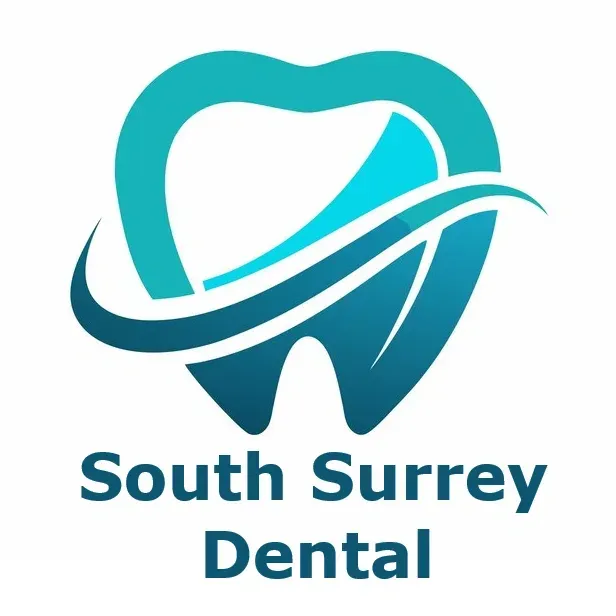
Are Wisdom Teeth Removal Covered by Dental Insurance?
Are Wisdom Teeth Removal Covered by Dental Insurance? Unveiling the Truth Behind Your Coverage!
When it comes to maintaining your oral health, few dental procedures evoke as much curiosity and uncertainty as wisdom teeth removal. Are these common extractions covered by your dental insurance plan? Do you need specific documentation or referrals? If these questions swirl in your mind, you’re not alone. At South Surrey Dental, we’re here to shed light on the ins and outs of dental insurance coverage for wisdom teeth removal, helping you navigate your benefits with clarity and confidence.
Wisdom teeth, also known as third molars, are the last set of adult teeth to emerge, typically making an appearance between ages 17 and 25. For many, these teeth can cause discomfort, crowding, or misalignment, prompting the need for extraction. Sometimes, wisdom teeth grow improperly or become impacted, meaning they don’t fully emerge from the gums, which can lead to infection or damage to neighboring teeth.
Understanding whether your wisdom teeth removal is covered depends on several factors, including the nature of the procedure, your insurance plan, and whether the removal is deemed medically necessary. But first, let’s explore what your dental insurance plan generally covers.
Many dental insurance plans offer coverage for wisdom teeth removal, but the extent can vary widely. Usually, if the extraction is considered necessary for oral health reasons—such as preventing infection, alleviating pain, or correcting misalignment—your insurance is more likely to provide coverage. However, routine or cosmetic procedures, like simple extractions for crowding purely for cosmetic reasons, may not be covered.
To determine if your specific procedure is covered, review your insurance policy’s details, especially the coverage for oral surgical procedures. Some plans explicitly state coverage limits, waiting periods, or require pre-authorization. For complex surgeries, insurance companies often require documentation from your dentist or oral surgeon indicating medical necessity.
- Type of Extraction: Simple vs. Surgical—Complicated extractions requiring anesthesia, incisions, or general anesthesia typically qualify for coverage under most plans.
- Medical Necessity: Coverages favor procedures deemed essential to prevent health complications rather than purely elective procedures.
- Insurance Policy Details: Deductibles, annual maximums, and specific exclusions can impact the coverage amount.
- Pre-Authorization Requirement: Many plans require prior approval before scheduling your surgery to ensure coverage.
- Provider Network: Choosing an in-network oral surgeon may influence the coverage and out-of-pocket expenses.
To ensure clarity, start by contacting your insurance provider directly. Ask specific questions like:
- Does my plan cover wisdom teeth removal?
- Are there any restrictions or limitations?
- What documentation is required to process the claim?
- What is the deductible, and how much of it has been paid this year?
- What is the annual maximum for dental benefits, and have I reached it?
It’s also advisable to consult with your dentist or oral surgeon early in the process. They can assist in filing pre-authorizations and provide the necessary documentation to optimize your coverage. For more insights on related procedures, explore our comprehensive guide on emergency dentistry services.
Yes. If the extraction is deemed cosmetic, elective, or purely for orthodontic reasons without demonstrating medical necessity, your insurance may decline coverage. Additionally, if you delay treatment until problems develop, some plans might refuse coverage based on prior conditions or lack of pre-authorization.
Even when insurance coverage is limited, there are ways to manage costs:
- Discuss flexible payment plans with your dental provider.
- Look into health savings accounts (HSAs) or flexible spending accounts (FSAs) to cover out-of-pocket expenses.
- Request a detailed estimate upfront to plan your budget accordingly.
- Explore discounts or promotions available for new or existing patients.
Before proceeding, it’s helpful to review related costs, such as full-mouth dental implant costs, to understand the broader scope of oral health expenses.
Preparation is key. Once you’ve confirmed your coverage, take the following steps:
- Schedule a consultation with a qualified oral surgeon or dentist.
- Obtain pre-authorization if required by your insurance plan.
- Ensure all necessary documentation is submitted timely for processing.
- Discuss sedation options, anesthesia, and recovery procedures to understand potential additional costs.
- Plan for recovery time—some insurance plans may offer benefits for post-operative care or follow-up visits.
For further guidance on scheduling your dental visits, consider reading our article on whether you need a referral to see a dentist.
Properly managed wisdom teeth removal not only relieves pain and prevents infections but also safeguards your overall oral health. It can prevent misalignment issues that complicate orthodontic treatments or cause uneven wear over time. Moreover, addressing potential problems early can save you significant discomfort and expenses down the line.
Absolutely. Once your wisdom teeth are removed, your dental insurance can support a variety of services, including routine cleanings, cavity fillings, and even cosmetic procedures. Regular maintenance ensures your smile remains healthy and radiant. For comprehensive dental cleaning services, visit our page on teeth cleaning services.
No. Coverage depends on whether the procedure is deemed medically necessary and your specific insurance policy. Always verify with your provider beforehand.
Your dentist or oral surgeon can provide documentation indicating whether the removal addresses health concerns like impaction, infection, or crowding, which supports medical necessity for insurance claims.
Request an explanation from your insurer, review your policy, and consider appealing the decision. Consulting with your dental care provider can also help identify alternative options.
Yes, seeking a second opinion from another qualified oral surgeon can help you understand your treatment options and insurance coverage potential more thoroughly.
It’s best to schedule an initial consultation as soon as you notice discomfort or suspect impaction. Early detection allows ample time for insurance approvals and planning.
Conclusion
Understanding whether wisdom teeth removal is covered by dental insurance hinges on multiple factors, including the reason for extraction, your insurance plan specifics, and the procedural necessity. Proactively communicating with your provider and working closely with your dental team can ensure you maximize your benefits while safeguarding your oral health.
At South Surrey Dental, our experienced team is committed to providing transparent, comprehensive care tailored to your needs. Whether you’re planning for wisdom teeth removal or exploring other dental services, we’re here to guide you every step of the way.




















